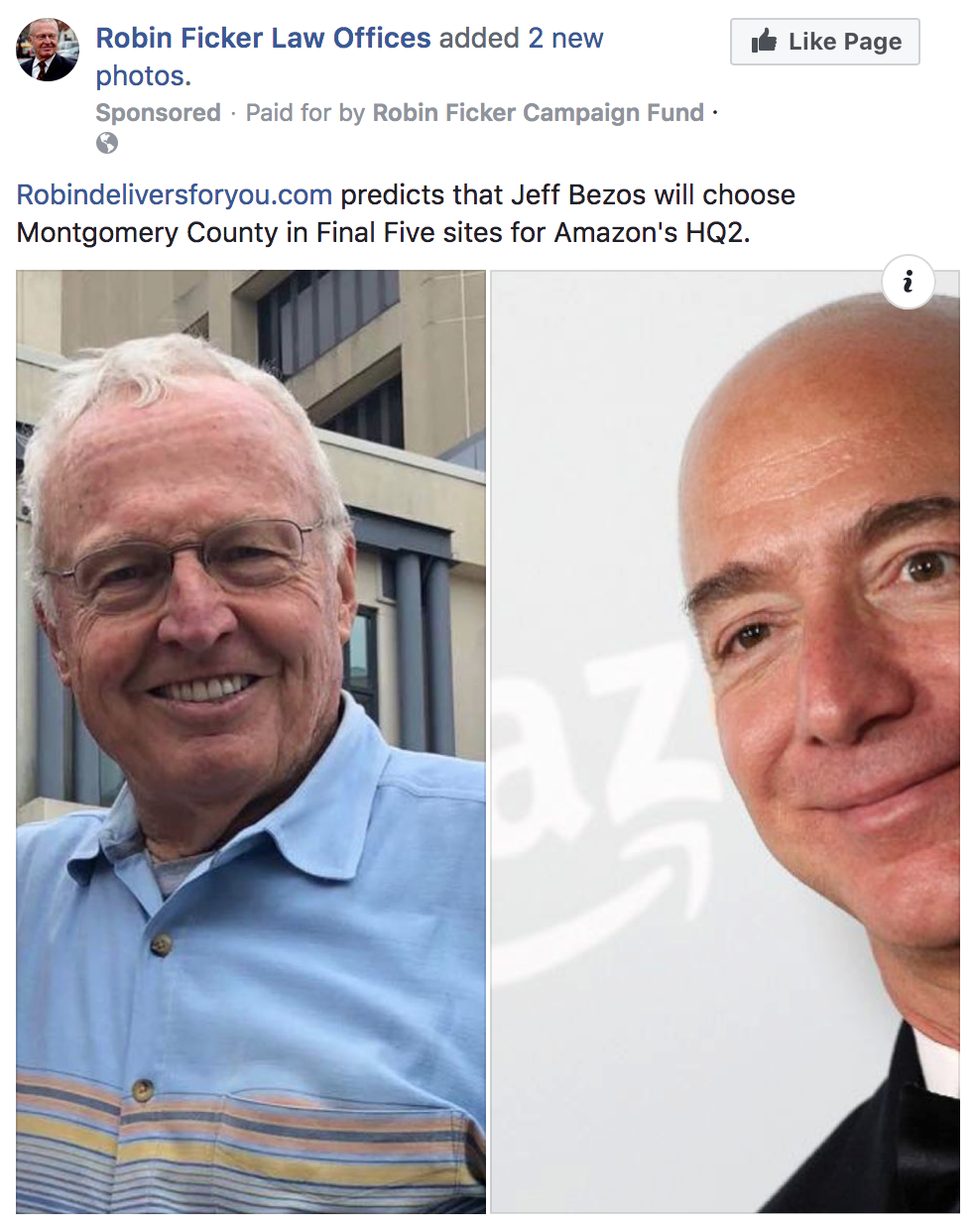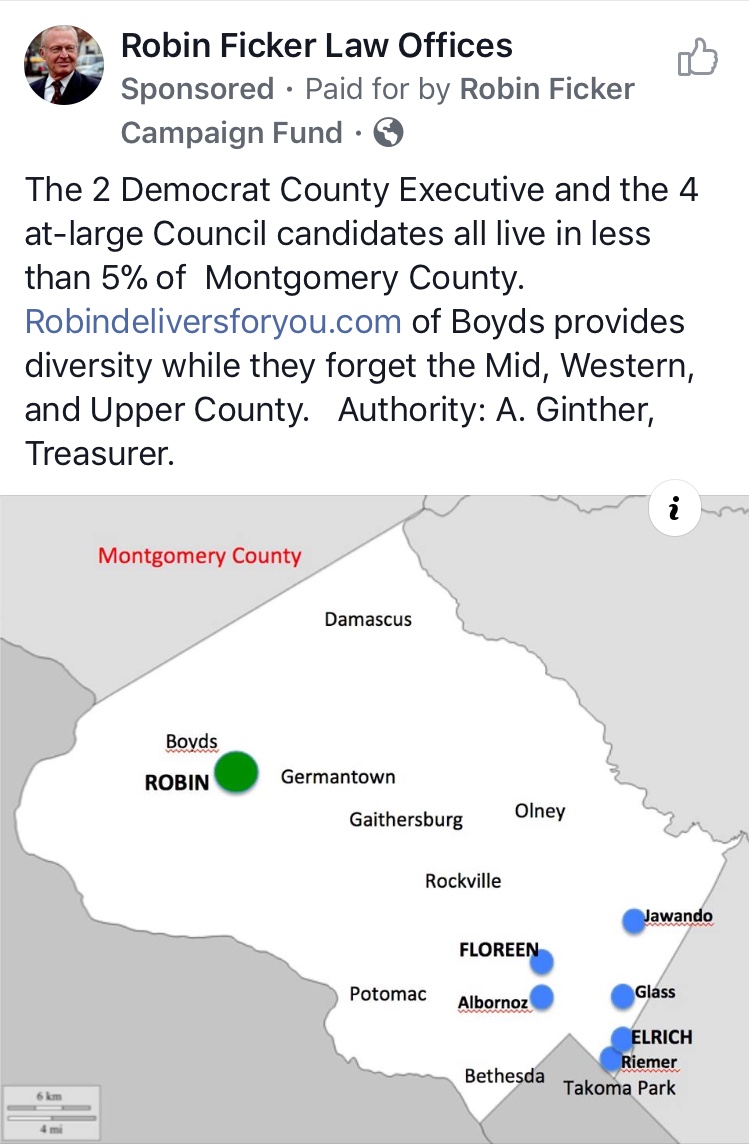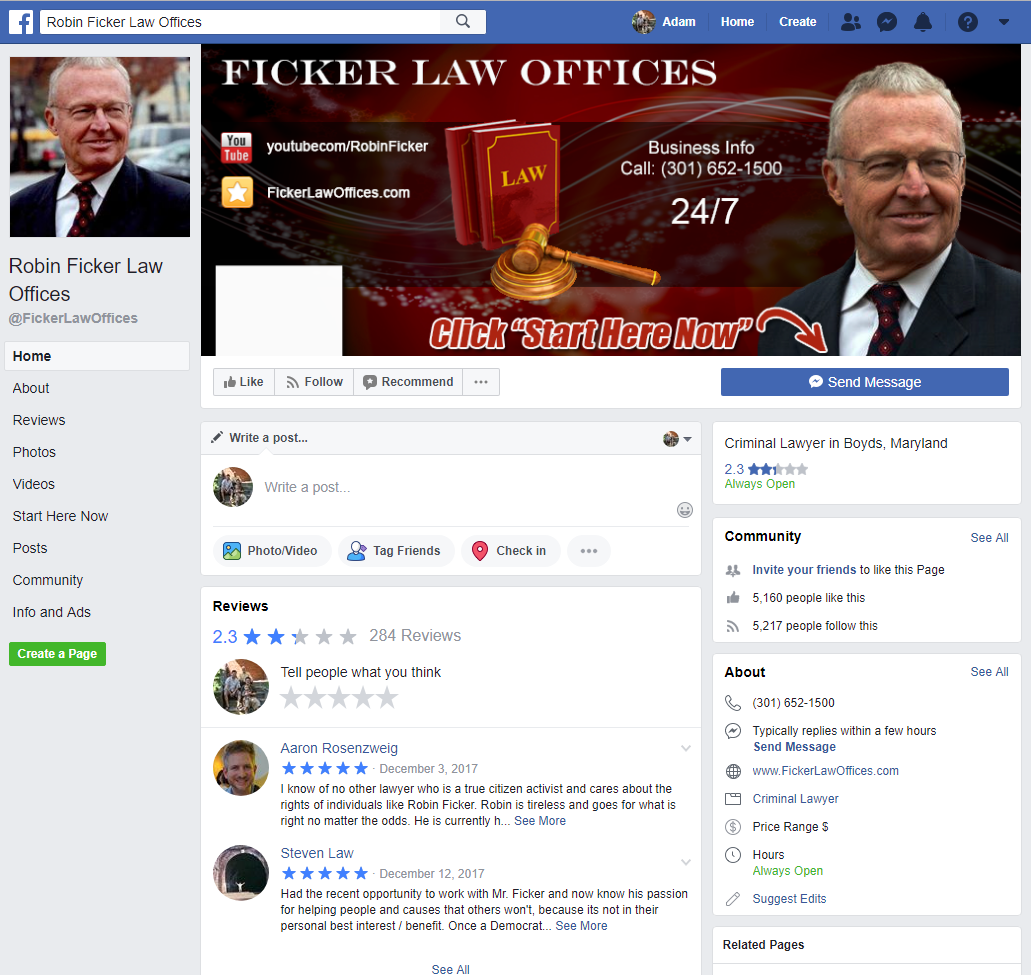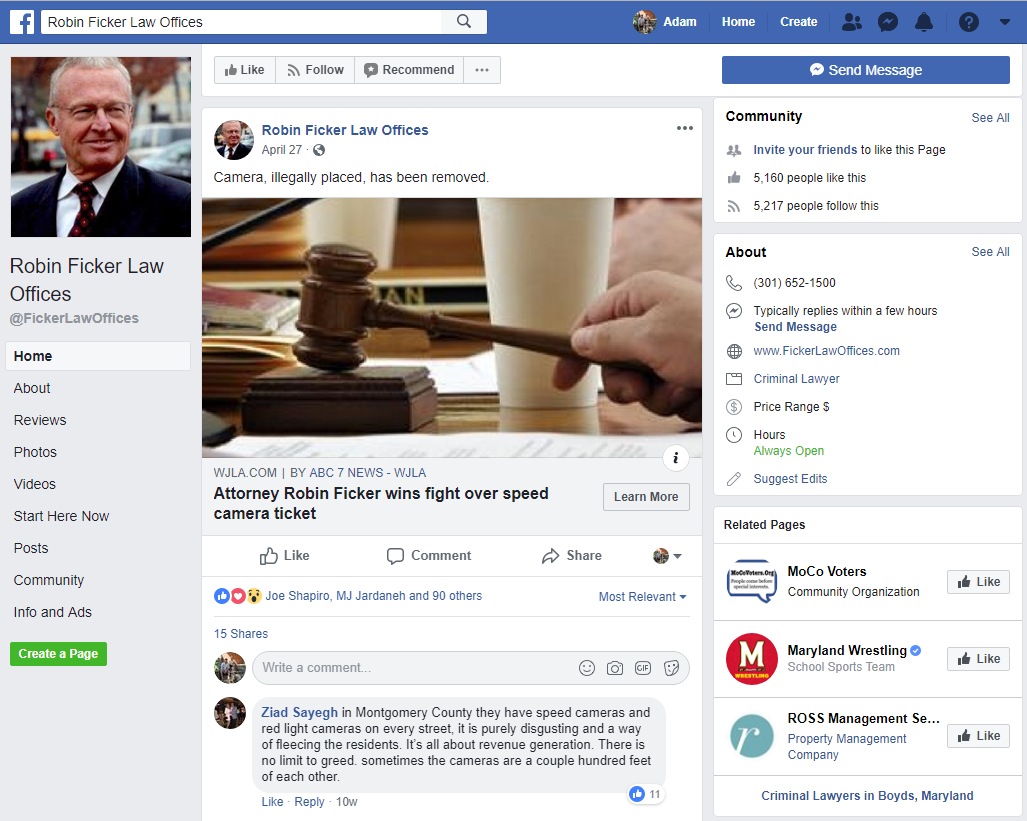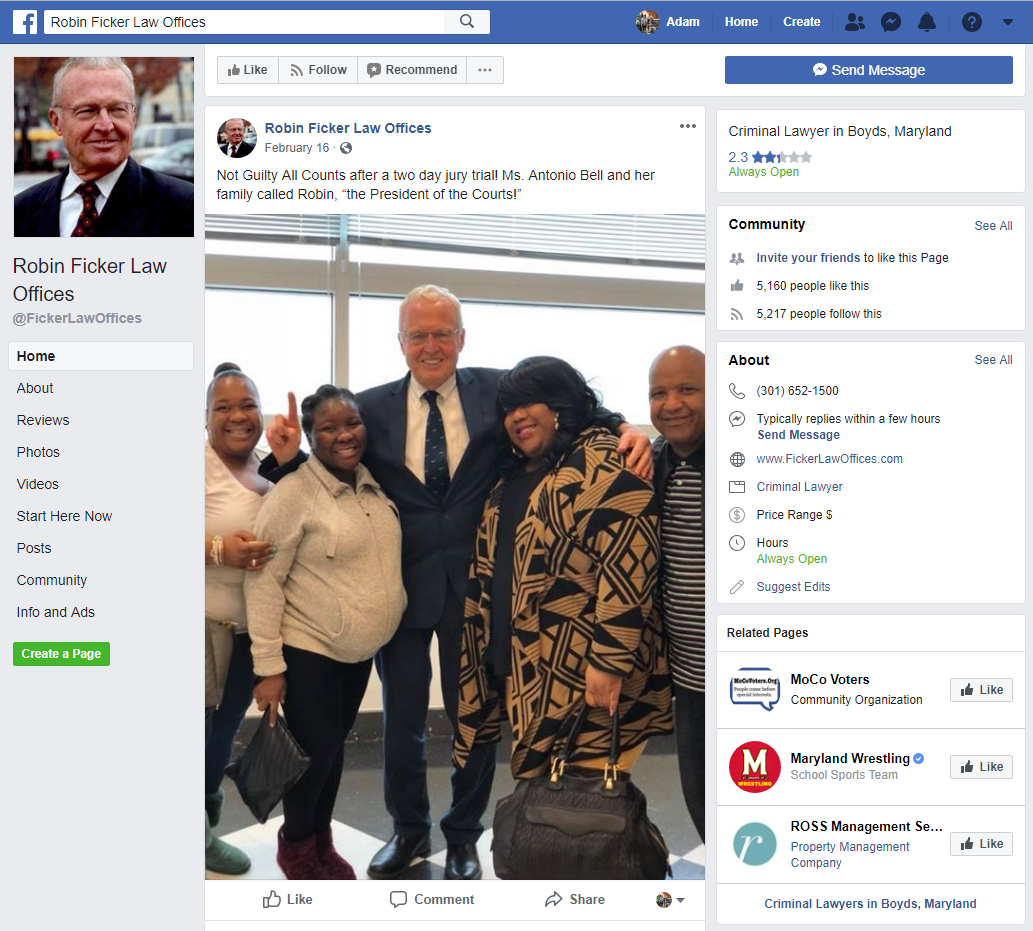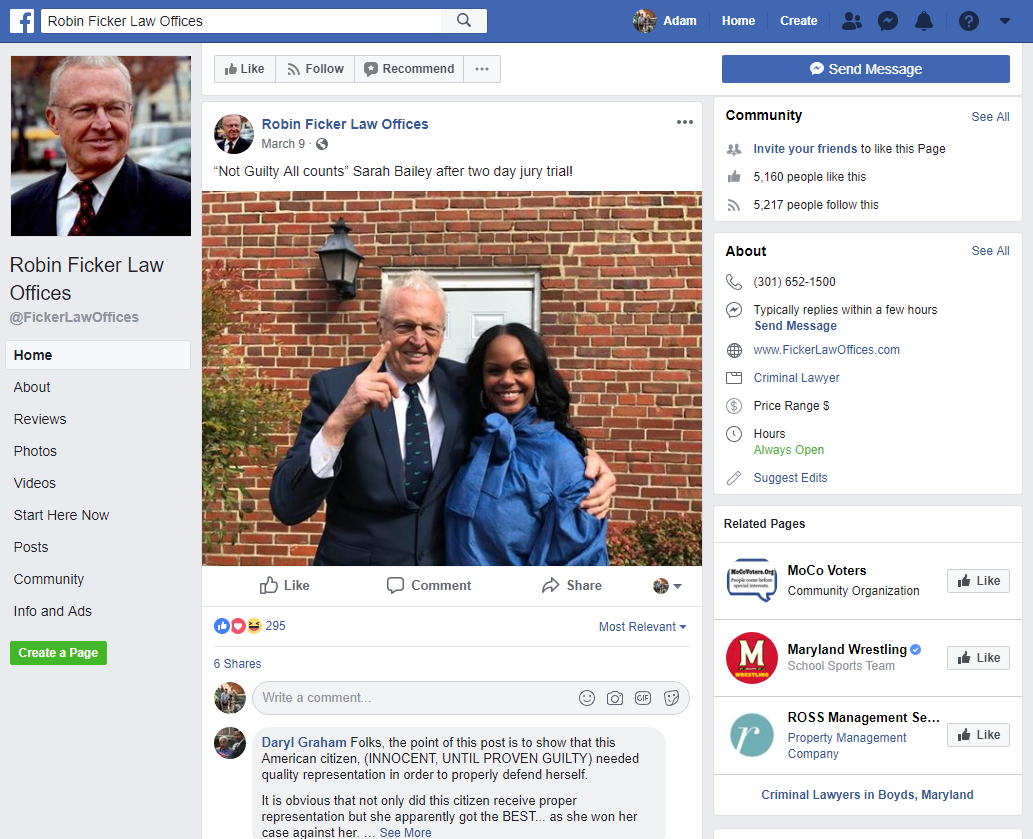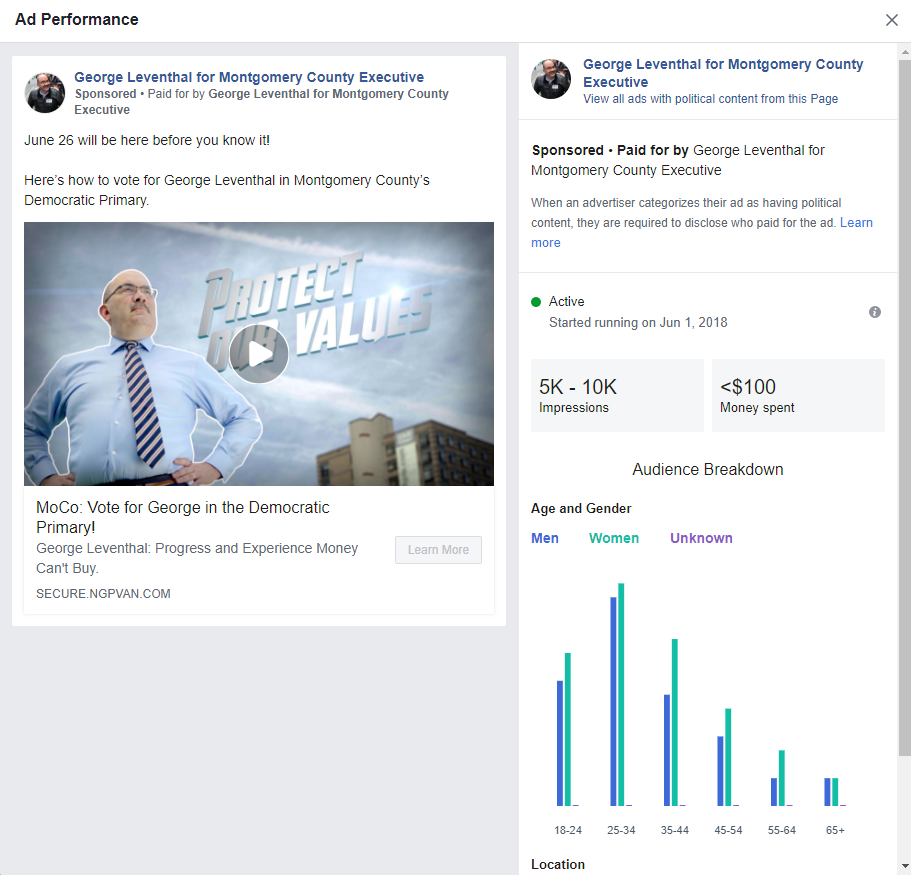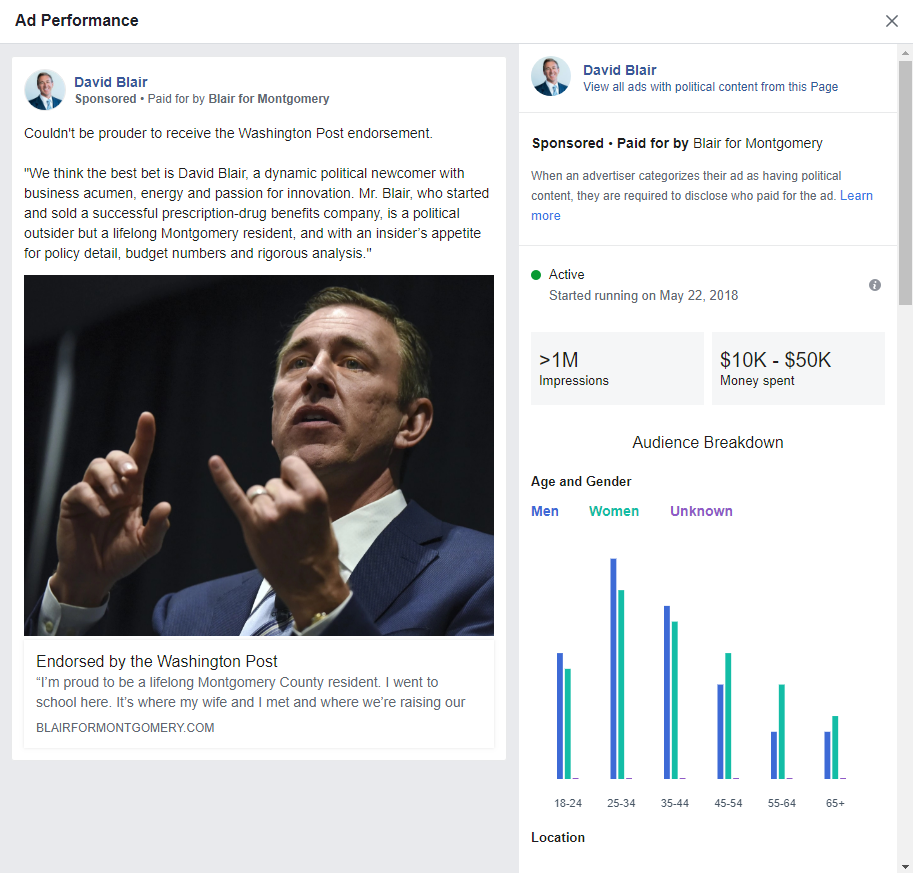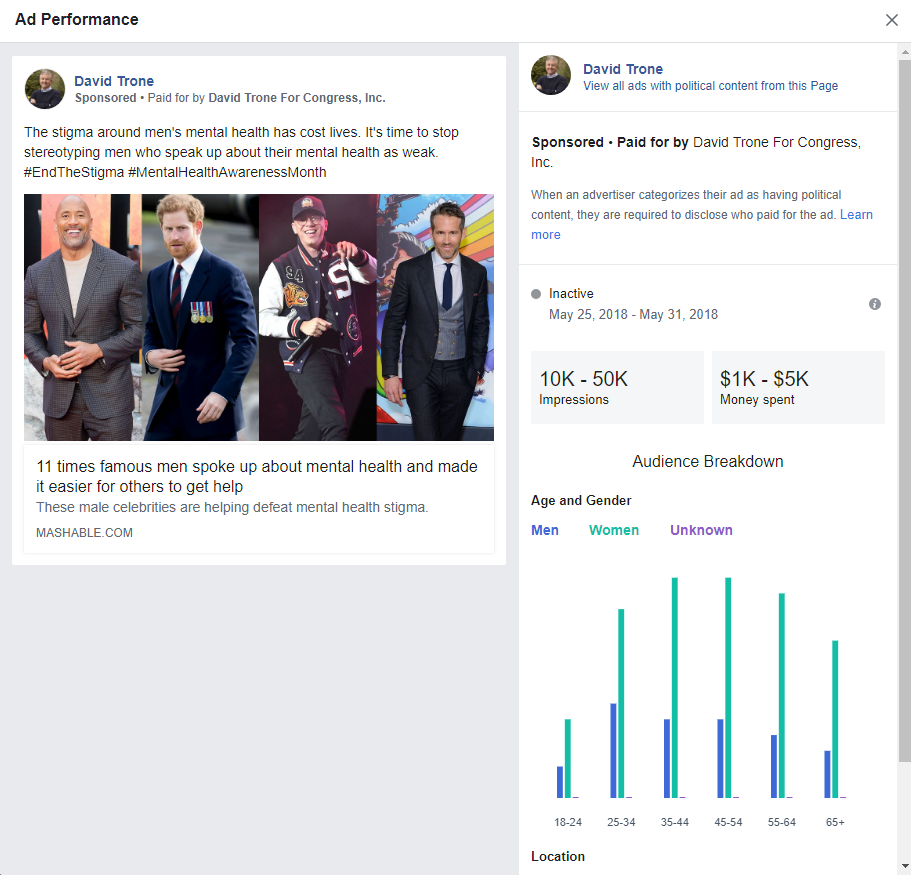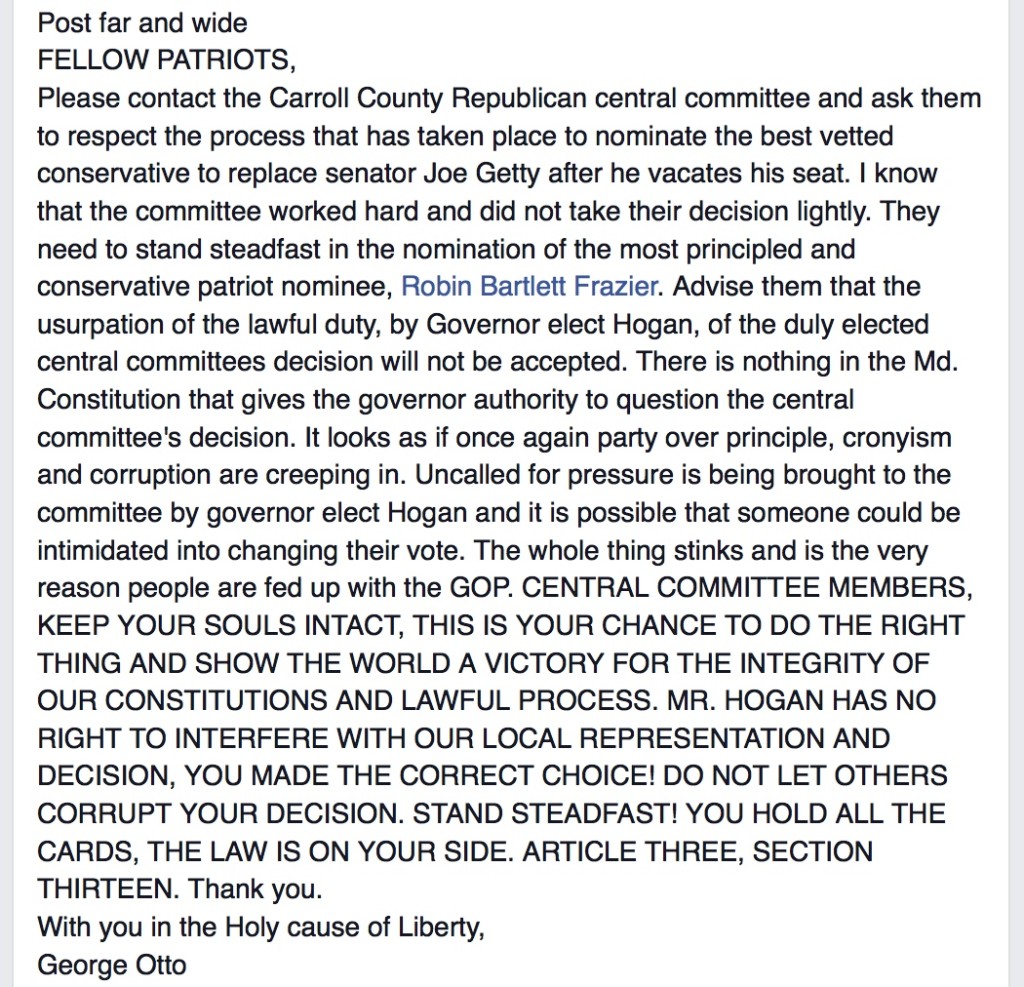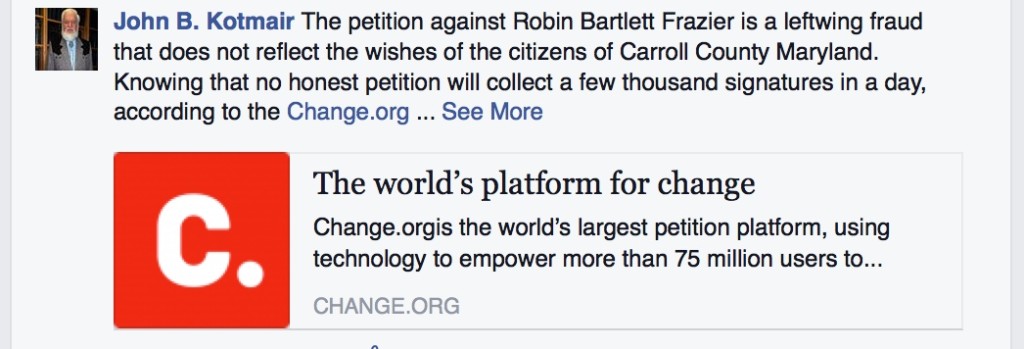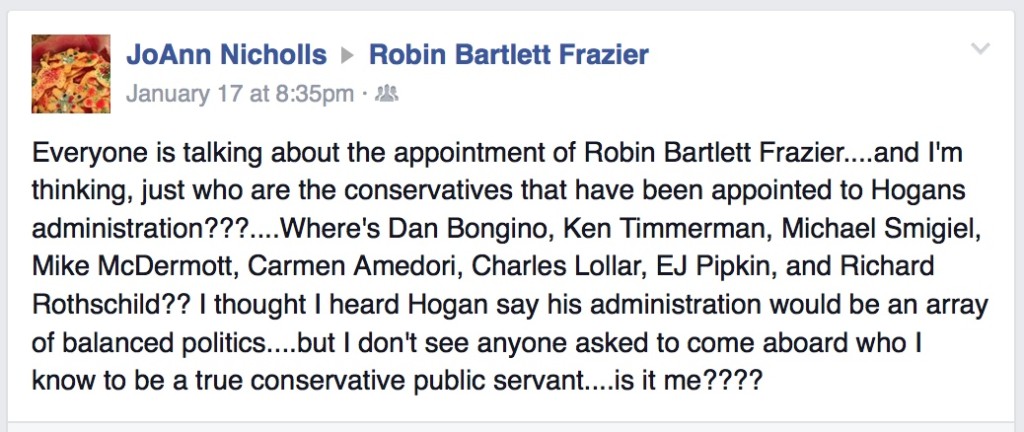By Adam Pagnucco.
Politician X is a happy man. His advocacy for Issues A, B and C is wildly popular. His constituents adore him. He basks in praise every single day, with only a few complaining misanthropes – likely from the other political party – who can be safely ignored. He can do no wrong and is a lock for reelection.
How does he know this? Because he has a few dozen friends on Facebook who tell him so!
Politician Y is a happy woman. Her advocacy AGAINST issues A, B and C – the very things X is promoting – is also wildly popular. Her constituents shower praise on her every ten minutes and there is no way she can lose. Higher office surely beckons.
How does she know this? Because her Facebook friends are just as adoring as X’s friends.
X’s world is just as real – and just as unreal – as Y’s world. Look at two examples.
In Montgomery County, Robin Ficker’s term limits charter amendment is a hot local issue. Those County Council Members who criticize it are lionized by the huge majority of their Facebook friends who weigh in. Judging by their comments, there is no way that term limits will pass. But go to Robin Ficker’s page and the world changes. He is surrounded by dozens of people – sometimes much more when he runs ads – who encourage him to keep it up. Judging by what is said on Ficker’s page, the voters will surely approve term limits by an overwhelming margin.
It happened again at the state level when Governor Larry Hogan issued an Executive Order mandating that public schools start after Labor Day. Critics of the order who based their opposition primarily on educational considerations were egged on by three-quarters or more of their Facebook friends who commented. But the Facebook pages of Hogan and the policy’s original architect, Comptroller Peter Franchot, swarmed with supporters who celebrated the order. Each side is convinced they’re right. Each side is convinced they will be vindicated – both on the policy merits and politically – in the end. And each side is backed up by enthusiastic supporters, so how can either of them be wrong?
Why does this happen?
Social media is a great tool for political communications, but it is subject to two forms of bias that can mislead politicians.
- Friend Bias
Politicians’ Facebook pages almost never contain representative samples of the public. For the most part, Facebook friends or fans are personal friends and acquaintances mixed with people who are inclined to support the politician. Those who are indifferent or hostile to the politician, but still vote, are much less likely to enroll on the politician’s page. The effect is akin to an elementary school play, in which the audience is comprised of parents and relatives of the children who are performing. Those children can do no wrong! Friend bias can be overcome to an extent by running ads from a fan page, as this will attract viewers who do not have a relationship with the politician. But don’t run an ad unless you’re prepared for what the outside world thinks!
- Comment Bias
While a relatively small number of loud voices tend to dominate social media, the vast majority of folks don’t like to fight in public. So when Politician Y puts up a political statement, those who agree will say “Yes!” and those who don’t will be more likely to stay silent. The latter people simply don’t want to be flamed and drawn into name-calling, shaming or other nastiness. Some of them may have another matter before the politician and don’t want to risk retaliation. The combination of friend bias and comment bias creates a powerful illusion of mass approval even when it’s not there.
This is high-tech tribalism. Every politician leads a tribe – the few dozen (or for the higher-ranking ones, several hundred) people who publicly agree with them on almost everything. This tribalism is so rigid that disagreeing tribes are barely acknowledged to exist. When they are, they are depicted as misguided and inferior. Politicians who lap up public adulation like cats who lap up milk love it. And some are deceived by it.
There’s a lesson to be learned here. Social media is a valuable political, communication and organizing tool that is still evolving. If you can use it to get a couple thousand people to support your cause – and there are examples out there – good for you. But if it results in the same group of a few dozen people always saying Yes to what you’re proposing, don’t believe that it represents genuine public opinion. If you do, then you’re vulnerable to REAL public opinion catching up with you!

